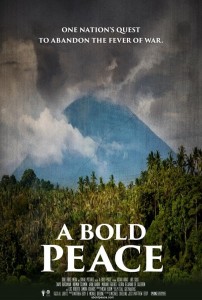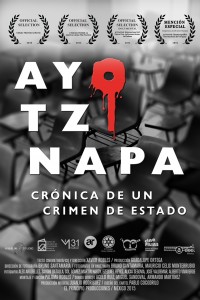Posts under tag: Michael Dreiling
A Bold Peace
On February 16, 6-8:00 pm in the Mills International Center, (M102 Erb Memorial Union at the UO), Sociology Professor Michael Dreiling will screen his award winning documentary, A Bold Peace, on the impact of Costa Rica’s radical choice of national disarmament. President Oscar Arias is featured in the film and will visit the campus on March 10. Comments and a Q&A will follow the film.
Mark your calendar for PeaceJam’s program featuring Nobel Peace Laureate and former Costa Rican president, Oscar Arias. Arias will deliver a public lecture at the UO on March 10th 6-8pm in Ford Alumni Ctr. Ballroom. PeaceJam workshops March 11-12. More at the UO Global Justice Program.
A Bold Peace – Costa Rica’s Demilitarization
On April 27, 6-8:00 pm in Straub Hall 145, UO Sociology Professor Michael Dreiling will screen his revelatory documentary, A Bold Peace, on the impact of Costa Rica’s radical choice of national disarmament. Hors d’oeuvres and refreshments. Comments and a Q&A will follow the film.
www.aboldpeace.com – trailer & press kit
TRT: 105 minutes
English, Spanish with English Subtitles
More than 60 years ago, Costa Rica became one of the only nations in the world to disband their military and to redirect national resources towards education, health, and the environment. Since then, Costa Rica has earned the number one spot in the Happy Planet Index, a ranking of countries based on the ecological footprint to behind the happiness and health of its citizens.
A Bold Peace juxtaposes the national policy of demilitarization (since 1948-49) with their investment in education, health, and the environment. Pointed parallels and contrasts are made with recent U.S. debates over the national debt, healthcare, the environment, and the escalating cost of U.S. militarism. The film builds from historical footage leading to the 1948 revolution and extensive interviews of former presidents, officials and scholars from the University of Costa Rica, Costa Rican government officials and ambassadors, leaders of major national co-operatives, and journalists and citizens of Costa Rica. Unfortunately, the Costa Rican example has received very little international attention. This documentary film brings attention to Costa Rica’s inspirational national project, answering why happiness, health, and human rights occupy a relatively prominent place in this Central American country.
Sponsored by: Latin American Studies, College of Arts & Sciences, International Studies, Political Science, Sociology, Global Justice Program, History, and the Crossings Institute
